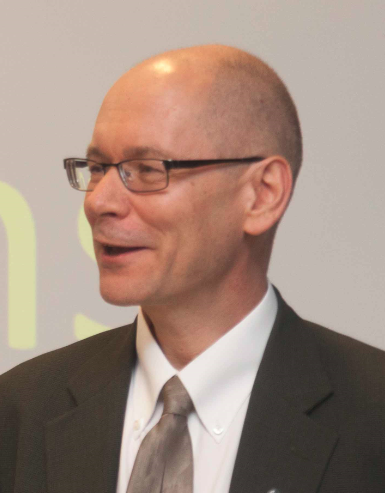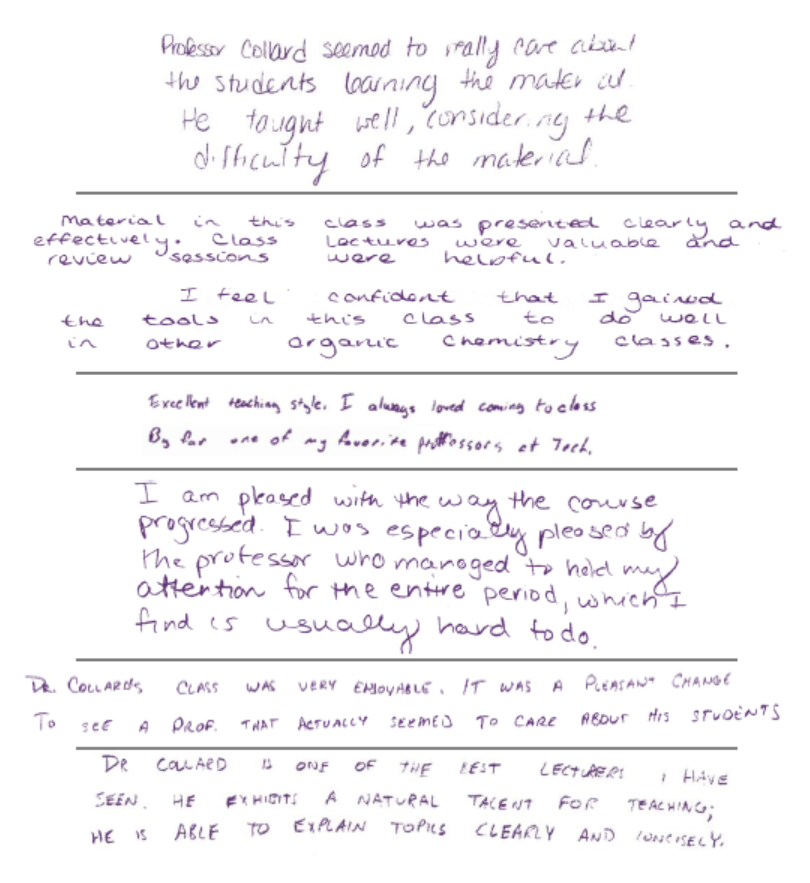David M. Collard is the recipient of the 2017 Felton Jenkins, Jr. Hall of Fame Faculty Award for the research and comprehensive universities sector of the University System of Georgia (USG). The award, which invites nominations from across USG, recognizes a faculty member for strong commitment to teaching and student success.
Collard is a professor in the School of Chemistry and Biochemistry and the associate dean for academic programs in the College of Sciences.
According to the award review committee, Collard is “an exemplar for combining the best of teaching and research” at a research institution. Collard’s selection for the award was unanimous, according to USG.
“I speak for the entire College when I congratulate David on this USG recognition of his accomplishments and thank him for his extraordinary partnership,” says College of Sciences Dean Paul M. Goldbart.
Among Collard’s many outstanding accomplishments, the USG review committee singled out his use of active-learning approaches and educational technology. Collard has also established a number of on-campus experiential learning programs. These have engaged more than a thousand students in undergraduate research, financial aid scholarships, and living-learning communities.
“Our programs today would be unrecognizable if you removed David’s contributions,” says M.G. Finn, the chair of the School of Chemistry and Biochemistry. “What we teach, how we teach it, what facilities we use to do so, and what advanced opportunities are available to our students all bear the Collard stamp.”
Also noted by the review committee was Collard’s work as co-director of the Chemistry Collaborations, Workshops & Communities of Scholars (cCWCS) program. The program, which is funded by the National Science Foundation, offers workshops that put professors back in the classroom to learn or relearn material in new contexts. cCWCS encourages best practices in science, technology, engineering, and mathematics (STEM) education for all instructors, the committee noted. The program’s workshops have engaged more than 3,000 faculty members from more than 800 U.S. institutions.
“In the development of undergraduate programs, David’s sharp strategic vision has led to several game-changing moves for the College,” Goldbart says. Examples are the creation of the science-oriented SMaRT and SHaRP living-learning communities, the planning for the B.S. in Neuroscience degree, and the cultivation of a strong partnership with the Georgia Tech Office of Admissions, which has yielded strong strides in undergraduate enrollment. “David’s multidimensional leadership,” Goldbart says, “continues to be crucial in advancing the College of Sciences and Georgia Tech.”
As a novice assistant professor entering a classroom of 70 students for the first time, Collard says, “expertise in my thesis research did little to inform me about how to connect to students in the class.” Twenty-five years later, Collard’s journey in academic leadership continues as he strives to further elevate teaching and learning and to broaden participation in STEM research. “My aim is to make sure that students know I’ve got their backs,” he says. “If they fail, then I have failed.”
For More Information Contact
A. Maureen Rouhi, Ph.D.
Director of Communications
College of Sciences




